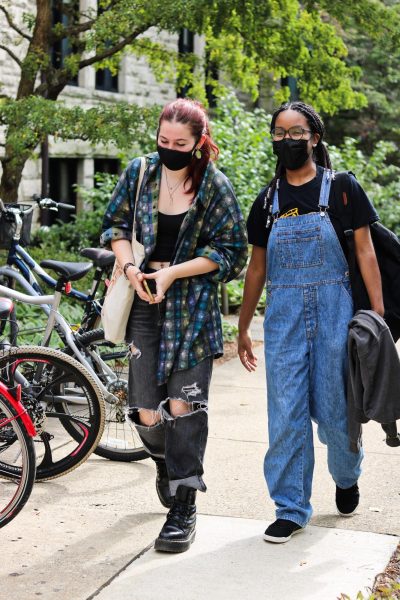New York Times Free Speech Editorial Sends Dangerous Message
Last week, The New York Times published an editorial titled “America Has a Free Speech Problem.” The title alone is an unfortunate start, but it gets worse. Much worse. Right off the bat, the Editorial Board asserts that one of the core freedoms granted to Americans is “the right to speak their minds and voice their opinions in public without fear of being shamed or shunned.” To its credit, the Board does go on to clarify the “important distinction between what the First Amendment protects (freedom from government restrictions on expression) and the popular conception of free speech (the affirmative right to speak your mind in public, on which the law is silent).” It would have been better if it had come up sometime before the 13th paragraph. That distinction, of utmost importance to the framing of the argument at hand, is buried in the middle of the piece so that, by the time readers get to it, they have already been primed to understand the editorial through the lens of a wildly inaccurate interpretation of the First Amendment.
The core argument of the piece is that a reality in which people hold their tongues for fear of shaming, shunning, retaliation, or harsh criticism is one that fundamentally threatens our democracy. The Editorial Board writes, “Free speech is the bedrock of democratic-self government. … When speech is stifled or when dissenters are shut out of public discourse, a society also loses its ability to solve conflict, and it faces a risk of political violence.” While this statement in and of itself does hold water, the piece conflates real, legal dangers to free speech — such as book-banning and Florida’s “Don’t Say Gay” bill — with “harsh criticism” or “shaming and shunning” in response to the espousal of genuinely harmful sentiments.
The editorial includes data from a poll, conducted by New York Times Opinion in conjunction with Siena College, that explores perceptions of free speech in the U.S. The survey reports that 55 percent of people have “held their tongue” at least once over the past year for fear of retaliation or harsh criticism, and 22 percent said they had retaliated against or harshly criticized someone for something they said. They make it out to be some tragic symptom of an ever more politically correct world, but these statistics are not nearly as concerning as the editorial would lead you to believe. Far from foretelling the downfall of American society, these numbers indicate that people are holding each other accountable for their words.
The poll also found that Black respondents were least likely to have held their tongues for fear of criticism or retaliation and generally felt the freest of all racial groups to talk about issues like gender identity, religion, and race relations. The article glosses over this point and fails to analyze the implications of these results: that the people who feel silenced on important political issues and feel their free speech is being threatened are, by and large, the ones who are accustomed to holding positions of power and not having to watch what they say about people in less privileged positions.
“The old lesson of ‘think before you speak’ has given way to the new lesson of ‘speak at your peril,’” the article reads, but this has always been the case for people of oppressed groups. The difference is that now, privileged people are finally being forced to contend with that reality in a way that used to be reserved for those who have historically been marginalized.
“The full-throated defense of free speech was once a liberal ideal,” writes the Editorial Board. It goes on to describe some of the legal battles that liberals have historically fought in order to preserve the right to free speech — the right not to recite the Pledge of Allegiance, the right to demonstrate against the Vietnam War, the right to burn the American flag. “And yet,” it writes, “many progressives have lost sight of that principle.” It cites a 93-year-old woman from Hartford, CT, who said she was “alarmed about reports of speakers getting shouted down on college campuses.” What the Board fails to realize is that rather than losing sight of that principle, liberals and progressives are able to recognize that it is, in fact, two separate principles. The first is the freedom to speak without government interference. The second is the freedom to speak without social consequence. In the same way I believe in the right of someone to burn the American flag or kneel for the National Anthem, I believe in the right of someone to tell me that I am doomed to eternal damnation because I am a queer atheist. It is my right, then, to shame, shun, and harshly criticize them. Freedom of speech cannot be a one-way street: the assertion of the right to speak without criticism necessarily undermines the free speech of the critics.
As an editor, and especially as an Opinions editor, I understand the importance of giving a platform to a variety of voices and perspectives. In the Review’s Opinions section, we strive to publish pieces that represent the full spectrum of perspectives at the College. However, it is critical that we keep in mind the distinction between an opinions piece and an editorial. While an opinions piece represents the opinion of an individual, an editorial represents the opinion of an editorial board: it is the collective voice of a large team of journalists. At some publications, like The Washington Post, editorials are explicitly stated to represent the position of the entire paper. Even though the Times Editorial Board does not officially represent the views of the publication, it holds the power and influence that come with being perceived that way. The decision to publish an editorial that so clearly antagonizes criticism of harmful views, especially as the most influential editorial board in the country, and perhaps the world, is reckless. It bolsters those who use this argument as an excuse to say harmful things while telling people who have been fighting for decades to be treated with respect that we are wrong for standing up for ourselves and setting boundaries.
They say that free speech is “predicated on mutual respect,” but when someone makes an offensive joke about queer people, that is disrespectful to me and a critical part of my identity, and I will not hesitate to exercise my own right to free speech and criticize the harm that is caused. Respect must be earned, and those who have chosen not to respect others will not earn my respect in return.




